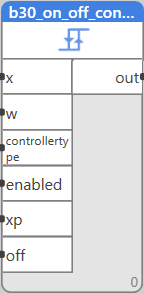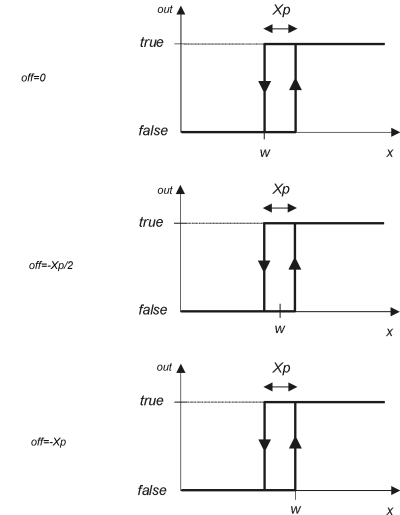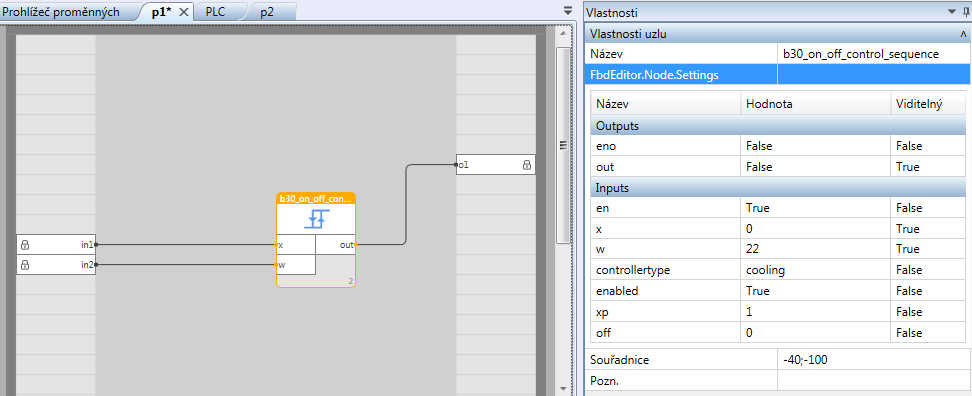Table of Contents
On/Off controller - cooling
Block name
B30_ON_OFF_CONTROL_SEQUENCE
ST call
PROGRAM B30_TEST VAR IN1, IN2:REAL; O1: BOOL; FB: LIB.CORE.V1_1.B30_ON_OFF_CONTROL_SEQUENCE; END_VAR FB(X:=IN1, W:= IN2); O1:= FB.OUT; END_PROGRAM
Library
LIB\CORE
Version
V1.1
Description
The block is an On/Off controller, parametrable according to CONTROLLERTYPE, bandwidth Xp, and offset OFF.
Inputs
| Input | Type | Description | Default value |
| ENABLED | BOOL | Enable of operation | True |
| X | REAL | Controlled value (e.g. temperature). | 0 |
| W | REAL | Setpoint value (e.g. temperature). | 22 |
| CONTROLLERTYPE | CONTROLLERTYPE | Controller type (Heating, Cooling). | cooling |
| XP | REAL | Hysteresis | 1 |
| OFF | REAL | Offset, added to the setpoint W. | 0 |
Outputs
| Output | Type | Description |
| OUT | BOOL | Output signal (usually heating element, chiller etc.). |
The output variable “OUT” has a flag since function block version 1.1 RETAIN to keep the last state when the PLC is restarted.
Function
The block is an implementation of a 2-state controller, or On/Off controller, where X is the controlled value, and W+OFF is the setpoint (the OFF parameter is an offset). It works as follows: Supposing temperature X is too high, then OUT=TRUE and cooling (if CONTROLLERTYPE=COOLING) is activated. As soon as the measured temperature X drops below W+OFF, the block sets OUT=FALSE and cooling goes off, which results in the temperature X rising. When temperature rises above X=W+OFF+XP, then OUT=TRUE, and cooling is activated again. Temperature drops and the whole process repeats.
The offset OFF is used to compensate the W parameter. There are 3 ways to set the offset, see below. Off = 0: Cooling controller. Off = -Xp : Maximum level controller.
The ENABLED parameter may switch the controller off. When ENABLED=FALSE, then the controller is off and OUT=FALSE.
Note:
When X= W+OFF then OUT=FALSE. When X = W+OFF+XP then OUT is not defined (it depends if it is reached from left or right).



